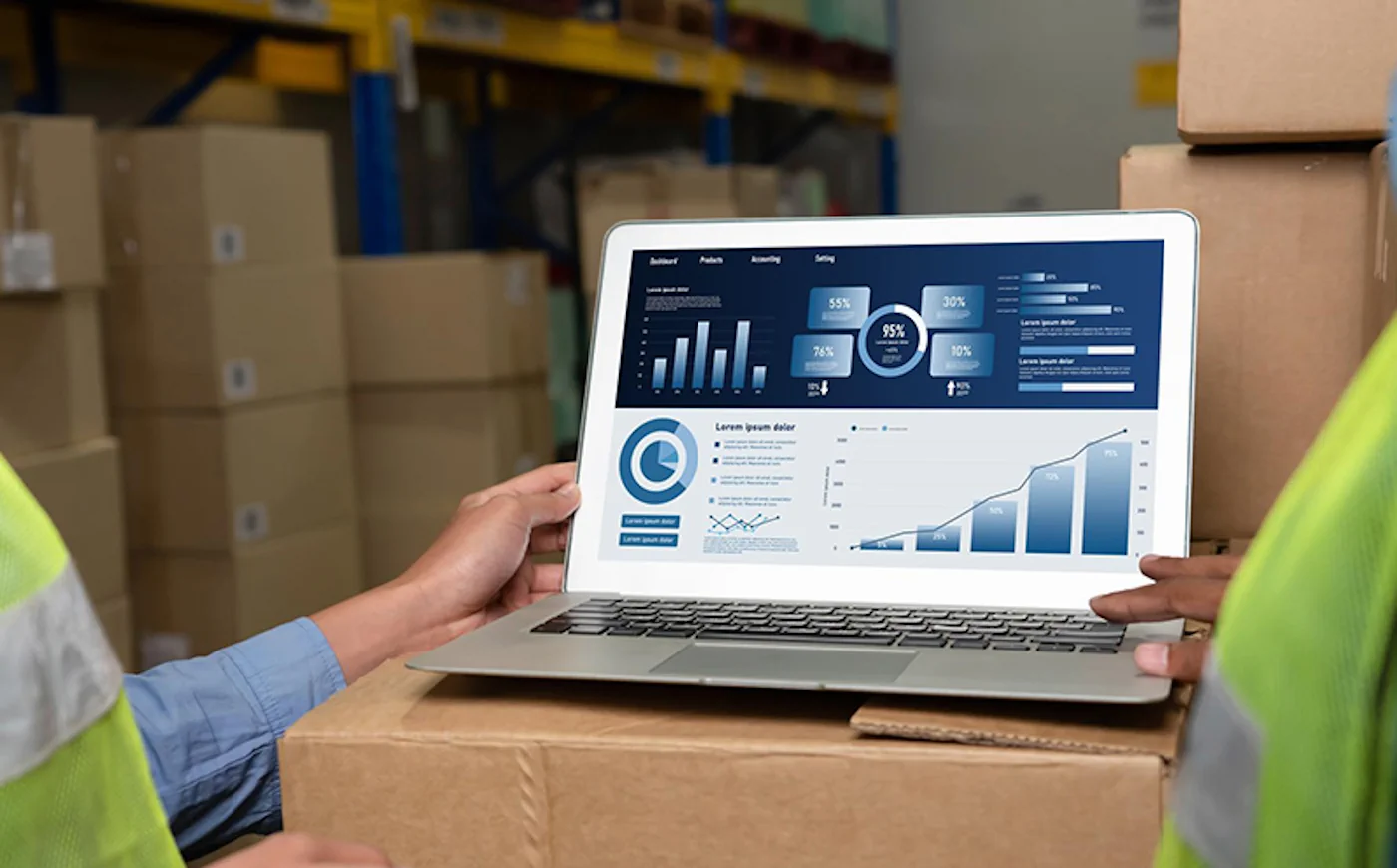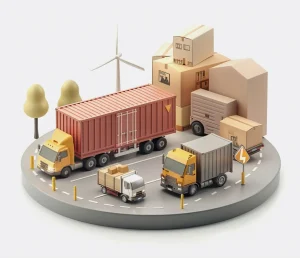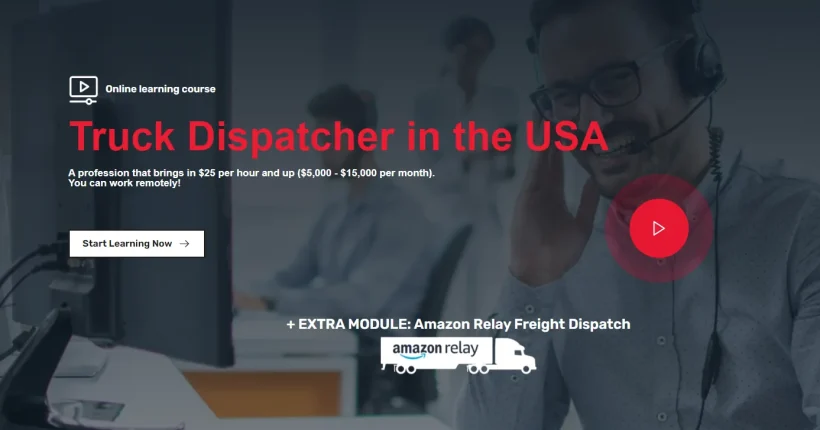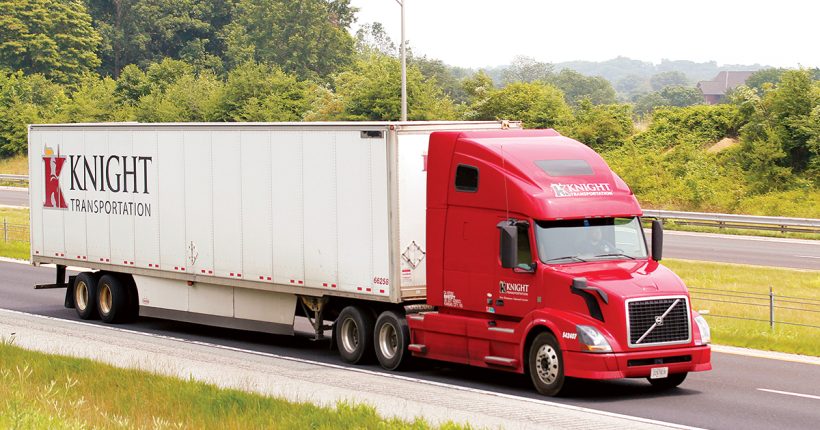

Digital Logistic: Revolutionizing the Trucking Industry in the USA
-
-
January 10, 2025
-
-
Digital logistic is at the forefront of transforming the trucking industry in the United States. With advancements in technology, including artificial intelligence, blockchain, and automation, companies are optimizing logistics operations, enhancing efficiency, and reducing costs. This digital revolution is reshaping the supply chain, offering businesses new opportunities to meet rising customer expectations in a highly competitive market.
The Advantages of Digital Logistic
Digital logistic offers a wide array of benefits that are reshaping the trucking industry. One of the most impactful changes is route optimization. By leveraging AI-powered tools, companies can calculate the fastest and most fuel-efficient delivery routes, saving both time and money. This not only improves delivery speed but also minimizes fuel consumption, reducing environmental impact.
Automation is another cornerstone of digital logistic. By integrating automated systems, businesses streamline order management, inventory control, and scheduling. Real-time tracking tools provide end-to-end visibility for customers and stakeholders, enhancing trust and satisfaction. These advancements also significantly reduce human error, ensuring smoother operations.

Moreover, digital logistic enhances operational transparency. Companies can consolidate their entire supply chain into a single platform, allowing for better coordination between drivers, dispatchers, and clients. This interconnected ecosystem is crucial for improving decision-making and achieving long-term success.
Impact on the Workforce
The rise of digital logistic has introduced new opportunities and challenges for the workforce. As companies adopt advanced technologies, there is an increasing demand for tech-savvy professionals who can manage digital platforms and analyze complex data. Skills such as programming, data analytics, and familiarity with AI tools are becoming essential in the logistics sector.
At the same time, existing employees must adapt to the changing landscape. Many drivers, dispatchers, and logistics managers are undergoing retraining to keep up with these technological advancements. Educational institutions and training centers are now offering specialized courses to bridge the skill gap, ensuring that workers remain competitive in the evolving industry.
Business Benefits of Digital Logistic
For businesses, digital logistic is more than a technological upgrade—it is a strategic necessity. Companies embracing digital solutions gain access to actionable insights that enable precise demand forecasting, inventory management, and supply chain coordination.
Automated warehouses are an excellent example of digital logistic in action. These facilities use robotic systems to sort and move goods, significantly speeding up order processing. As a result, businesses can deliver goods faster while reducing operational costs, thereby gaining a competitive edge.

Additionally, digital logistic facilitates better customer service. With real-time tracking and predictive analytics, companies can offer personalized delivery schedules and faster resolution of issues, fostering greater customer loyalty.
Future Prospects of Digital Logistic
The future of digital logistic in the USA is promising. Experts predict that by 2030, most major players in the trucking industry will fully adopt artificial intelligence, blockchain, and other advanced technologies. These innovations will enable companies to offer tailored logistics solutions, such as flexible pricing models and adaptive delivery schedules, based on real-time market conditions.
Another important trend is the integration of sustainability into digital logistic. Advanced systems can optimize routes and minimize empty miles, significantly reducing carbon emissions. This shift toward eco-friendly logistics not only benefits the environment but also strengthens a company’s reputation as a socially responsible entity.
Conclusion
Digital logistic is revolutionizing the trucking industry in the USA, providing tools to streamline operations, reduce costs, and improve customer satisfaction. As businesses adapt to this technological shift, they gain a competitive advantage in an increasingly digital world.
To stay ahead, companies must prioritize investments in digital logistic solutions, from IT infrastructure to automated warehouses. Equally important is the training and development of their workforce to manage and leverage these systems effectively. The future of logistics lies in innovation, and embracing digital logistic is the key to unlocking its full potential.
Categories
- Amazon Relay 9
- Dispatch 4
- Logistic 5
Recent Posts
Understanding the U.S. Truck Dispatcher Average Salary
How Dispatchers Help Optimize Freight Costs in the USA
Related
Related Posts
-
January 23, 2025
-
January 13, 2025
-
January 12, 2025
-
January 10, 2025










